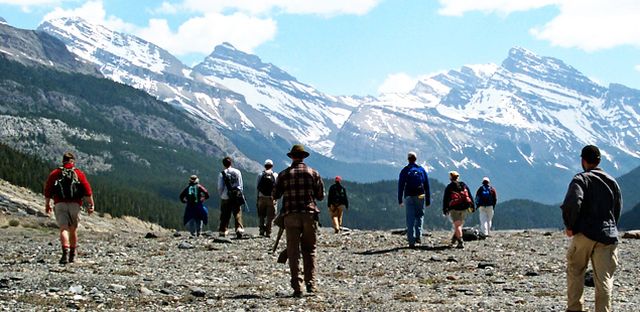
Geology Faculty Publications
Modelling and Estimation of Different Components of Streamflow for Gangotri Glacier Basin, Himalayas
Document Type
Article
Publication Date
2008
Publication Source
Hydrological Sciences Journal
Abstract
The understanding of the runoff generation processes is reviewed and simulation of daily streamflow is reported for the Gangotri Glacier basin (Central Himalayas) with area of ∼556 km2, of which ∼286 km2 is occupied by the glaciers, and altitude of 4000 to 7000 m.a.s.l. A hydro-meteorological database was established by collecting meteorological and hydrological data near the snout of the glacier for four melt seasons (2000–2003) covering the period from May to October every year. Flow was simulated using a snowmelt model (SNOWMOD) based on the temperature index approach. Two years (2000 and 2001) of the four-year data set were used to calibrate the model, and the remaining two years (2002 and 2003) were used for verification. The study was carried out during the ablation period, as the availability of data was restricted to that period, responsible for a major part of the runoff. The model performed well for both calibration and verification periods. The overall efficiency of the model, R 2, was 0.96 and the difference in volume of computed and observed streamflow was −2.5%, indicating a good model performance. Simulation of different components of streamflow clearly indicates that almost all the high peaks are attributed to melt. The model was also used to estimate the respective contributions by melt and rainfall to the total seasonal flow: for summer runoff, these were estimated to be about 97% and 3%. Such studies are very useful for the planning and management of water resources in high-altitude areas and for designing hydropower projects.
Inclusive pages
309-322
ISBN/ISSN
0262-6667
Copyright
Copyright © 2008, Taylor and Francis, from Hydrological Sciences Journal
Publisher
Taylor & Francis
Volume
53
Issue
2
Peer Reviewed
yes
eCommons Citation
Singh, Pratap; Haritashya, Umesh K.; and Kumar, Naresh, "Modelling and Estimation of Different Components of Streamflow for Gangotri Glacier Basin, Himalayas" (2008). Geology Faculty Publications. 18.
https://ecommons.udayton.edu/geo_fac_pub/18
COinS



Comments
Permission documentation is on file.